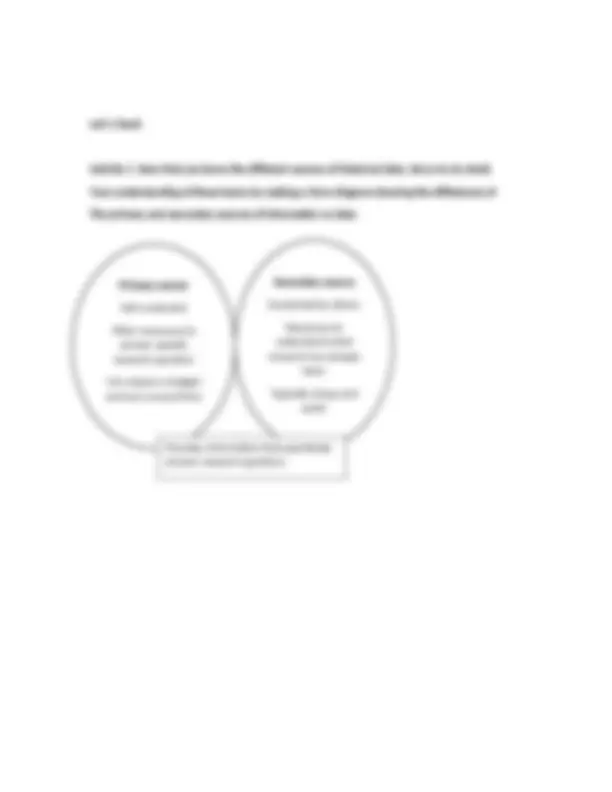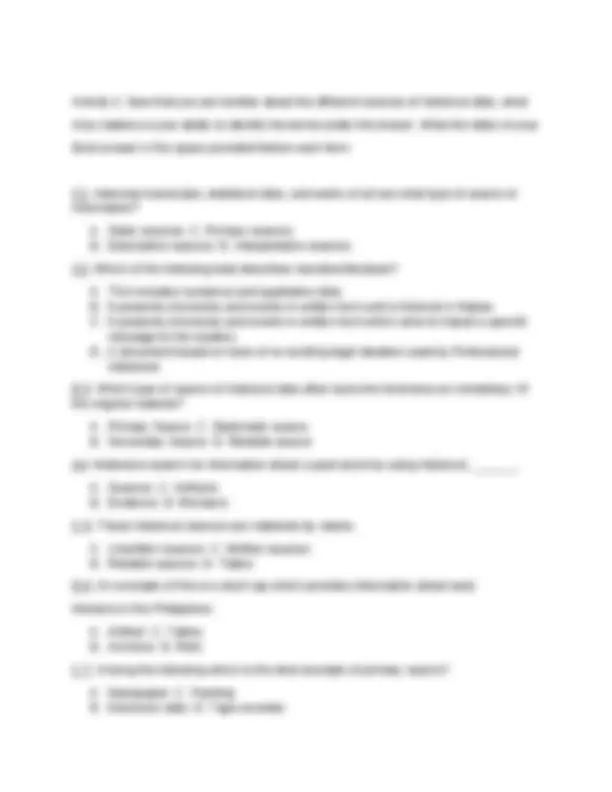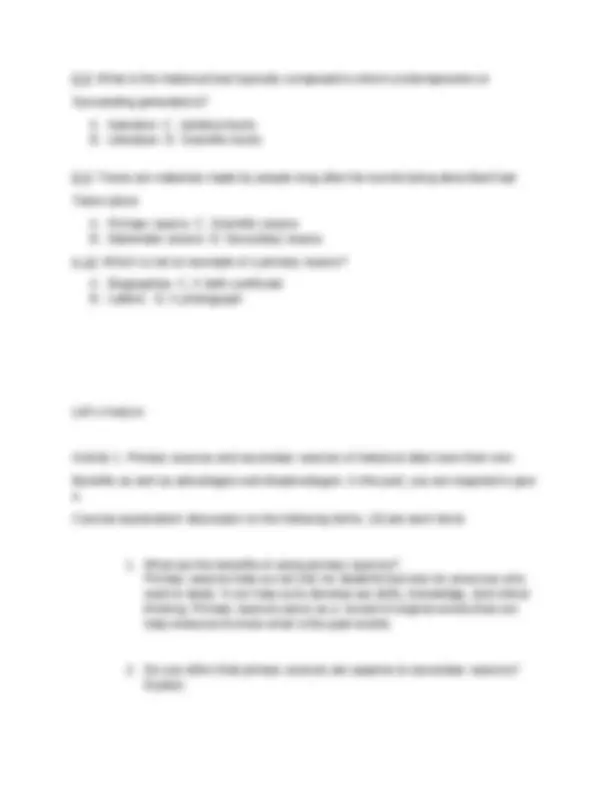





Study with the several resources on Docsity

Earn points by helping other students or get them with a premium plan


Prepare for your exams
Study with the several resources on Docsity

Earn points to download
Earn points by helping other students or get them with a premium plan
Community
Ask the community for help and clear up your study doubts
Discover the best universities in your country according to Docsity users
Free resources
Download our free guides on studying techniques, anxiety management strategies, and thesis advice from Docsity tutors
Meaning of history question and answers
Typology: Assignments
1 / 6

This page cannot be seen from the preview
Don't miss anything!




Shella Mae Comaling Code/Time: Ge8 2708 7:30-8: Let’s Check Activity 1. Now that you know the most essential terms about History, let us try to check Your understanding of these terms. In the space provided, write True or False. True if the Statement is correct and False if the statement is incorrect. (1 point each number) True 1. Studying history will teach students important skills. False 2. History is derived from the Latin word historia, meaning inquiry or investigation. True 3. Herodotus is considered to be the father of history. False 4. Plutarch was a philosopher and teacher of Alexander the Great who emphasized that knowledge is acquired through employing a process of scientific investigation of past events. False 5. Renato Constantino, a Filipino historian, who posited the notion that “no document no history.” False 6. Historical Analysis is the study of historical writing. False 7. Speculative history goes beyond the facts and is concerned about the “why” and “how” rather than the “what” and “when”. True 8. Absolute objectivity and impartiality are possible for the historian. False 9. Verisimilitude is the aim of every historian. True 10. Historical method is the process of critically examining and analyzing the records and survivals of the past.
Let’s Analyze Activity 1. Getting acquainted with the essential terms about history is not enough, what Also matters is your ability to understand the concepts and be able to explain the relevance Of history provided in each item. Now, I will require you to explain thoroughly your answers. (10 points each item).
Activity 2. Now that you are familiar about the different sources of historical data, what Also matters is your ability to identify the terms under this lesson. Write the letter of your Best answer in the space provided before each item. C1. Interview transcripts, statistical data, and works of art are what type of source of Information? A. Static sources C. Primary sources B. Descriptive sources D. Interpretative sources C2. Which of the following best describes narrative/literature? A. This includes numerical and qualitative data B. It presents chronicles and events in written form and is fictional in Nature C. It presents chronicles and events in written form which aims to Impart a specific message to the readers. D. A document based on facts of an existing legal situation used by Professional historians B 3. Which type of source of historical data often lacks the freshness an immediacy Of the original material? A. Primary Source C. Diplomatic source B. Secondary Source D. Reliable source A4. Historians search for information about a past event by using historical _______. A. Sources C. Artifacts B. Evidence D. Remains C 5. These historical sources are materials by nature. A. Unwritten sources C. Written sources B. Reliable sources D. Tattoo D 6. An example of this is a skull cap which provides information about early Humans in the Philippines. A. Artifact C. Tattoo B. Archives D. Relic C 7. Among the following which is the best example of primary source? A. Newspaper C. Painting B. Electronic data D. Tape recorder
D 8. What is the historical tract typically composed to inform contemporaries or Succeeding generations? A. Narrative C. Juridical tracts B. Literature D. Scientific tracts D 9. These are materials made by people long after the events being described had Taken place. A. Primary source C. Scientific source B. Diplomatic source D. Secondary source A 10. Which is not an example of a primary source? A. Biographies C. A birth certificate B. Letters D. A photograph Let’s Analyze Activity 1. Primary sources and secondary sources of historical data have their own Benefits as well as advantages and disadvantages. In this part, you are required to give a Concise explanation/ discussion on the following items. (10 pts each item)